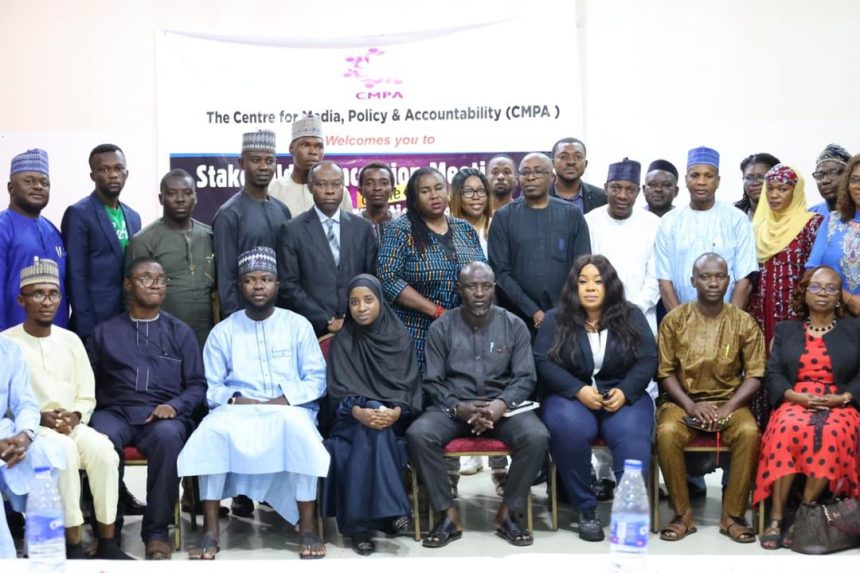By Linus Aleke
A University Don, and anti corruption crusader, Prof. Sadiq Radda, said, the fight against corruption in Nigeria, without active participation of State Governors and Local Government Chairmen, is half done.
Prof. Radda, made this disclosure, in his goodwill message, at the one-day Stakeholders Inception Meeting (SIM), on the Nigeria Anti-Corruption Public Performance Reporting, organized by Centre for Media, Policy and Accountability, in Abuja.
He also disclosed that the quantum of corruption in the private sector is higher than the corruption in public sector, citing ICPC data.
This is even as, as another University Don, with Obafemi Awolowo University, Ile Ife, Prof. Sola Akinrinade, said, the anti corruption agencies in Nigeria are not puting out their achievements to the public, hence the widening gap between corruption perception and reality.
The senior academic with Bayero University Kano, said, citizens can equally fight corruption through political participation, arguing that it is through active participation in the political process that good leaders who will put an end to corruption would be elected into offices.
“When citizens ignore political participation, then all manners of leaders that we don’t want would emerge,” he said.
Prof. Radda added, Nigeria should eschew what he described as overpresidentialization of anti corruption, where everything in the country is centred around the president, where things that a councilor can ordinarily address is taken to the desk of the president.
According to him, “Nigeria should understand that we have three arms of government, as well as three tiers of government. Fighting corruption requires these three arms and tiers of government to function properly. Serious fight against graft took place under the Buhari regime, but when we don’t have the state governors and local government chairman actively taking part as it is been done by the central government, it is half done.
“The state government takes substantial percent of the allocation from federation account, therefore, they must be serious about fight against corruption. We have the legislature and judiciary, yet everybody seems to concentrate on the president and his retinue of staff, so overpresidentialization, over concentration on executive only is not going to be helpful. Another factor is over protection of the private sector. We seem to protect private sector, but ICPC report has shown that the quantum of corruption in the private sector is much more higher than the public sector. So, why we are fighting corruption in public sector we should equally pay attention to the private sector”.
In a keynote address, the Country Director, MacArthur Foundation,
Mr. Kole Shettima,
said, the foundation has been providing support on anti-corruption projects to address the systemic corruption that has plagued the nation for years.
He observed that the detrimental effects of corruption on Nigerian society requires concerted efforts to combat it.
“Corruption drains resources, stifles economic growth, perpetuates poverty, and hinders development,” he said.
The Executive Director, of CMPA/NAPPR, Dr. Suleiman A. Suleiman, in a remark, said, the project aims to bridge the gap between Anti-Corrution Agencies, ACAs, and other stakeholders through research, advocacy, training, and capacity building.











